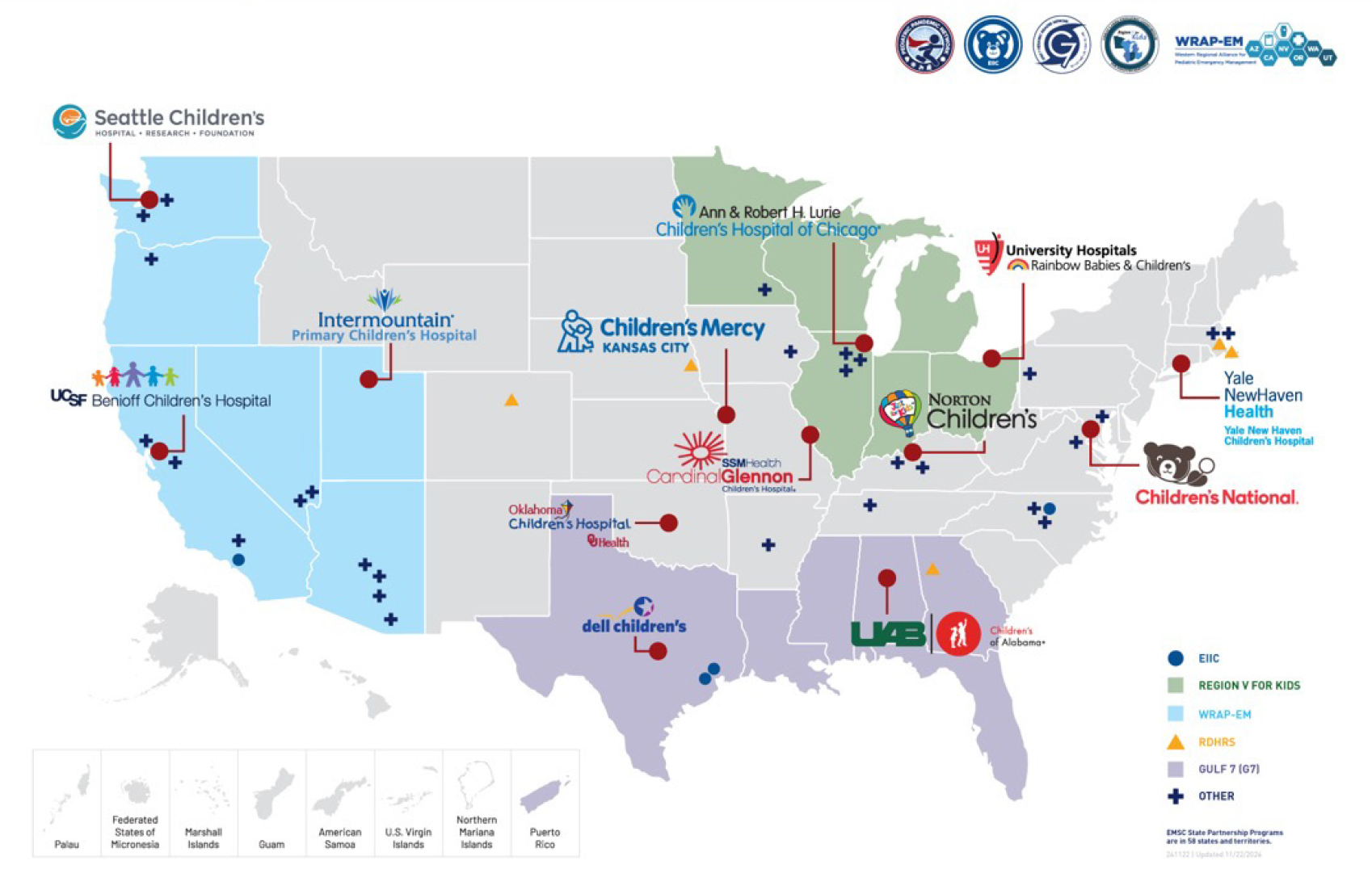- Supply Chain Resilience
- >
- Empowering Pediatric Healthcare for Crisis Readiness
TOPIC:
Empowering Pediatric Healthcare for Crisis Readiness
Introducing Enhancing Pediatric Healthcare Preparedness, an initiative aimed at strengthening pediatric healthcare supply chain preparedness and resilience while promoting health equity. In collaboration with the Pediatric Pandemic Network (PPN), this project responds to the growing need for specialized preparedness measures that address the unique needs of children and their healthcare providers in crisis situations.
PPN, funded by the Health Resources and Services Administration (HRSA), works to empower healthcare systems and communities through resource sharing and expertise to address systemic shortcomings in pediatric care. The network’s participants include thirteen children’s hospitals across the US who act as regional hub sites, and work with numerous national and regional organizations such as federal agencies, academic institutions, nonprofits, and more.
Through this initiative, we are serving as the supply chain task force within PPN, leveraging our expertise to address the unique challenges faced by pediatric healthcare systems. Our work prioritizes supply chain assessments and policy analysis to establish and disseminate best practices and recommendations within PPN hub sites and builds upon our previous work with Region V for Kids. Additional efforts include virtual sessions on supply chain resilience and children’s health policy and a pediatric product shortage pilot. We are committed to identifying and implementing effective strategies that will enhance our ability to respond to future crises, ensuring that pediatric patients receive the care they need without interruption. Below, you’ll find details on our key initiatives and links to the deliverables created through this project.
Resilient Supply Chains, Healthier Futures
When it comes to protecting children’s health, the medical supply chain is far more fragile than most realize. Hospitals across the country are navigating shortages, staffing losses, and rising cyber threats that could leave pediatric patients without the critical supplies they need in a crisis.
The Pediatric Pandemic Network’s new Supply Chain Assessment:
- Where the most urgent vulnerabilities lie in the pediatric supply chain
- Why current policies fall short of protecting children’s hospitals
- What must change to safeguard access to essential supplies during future surges and disasters
This is the first comprehensive look at how our nation’s pediatric supply chain really holds up under stress—and the findings are both eye-opening and urgent.
Read the full report to see the risks, the opportunities, and the bold steps being taken to protect kids’ care.
PPN Hub Sites and Key Partners

Key Initiatives
Virtual Sessions and Resources
Our interactive virtual sessions and resources help equip the pediatric healthcare workforce with critical skills in emergency preparedness, response coordination, and patient care continuity during crises. These virtual sessions act as a platform fostering collaboration, innovation, and equity in pediatric supply chain resilience. Our resources are designed to be easily integrated into the pediatric healthcare workforce efforts, enhance the ability to respond effectively to pediatric-specific healthcare challenges, ensure resource allocation during disasters, and strengthen collaborative practices across healthcare systems for improved patient outcomes.
Session 1: “Resiliency Starts with You: Building Strength in the Pediatric Healthcare Supply Chain”
October 22, 2024 • 2:00-3:30pm ET
Brief Description
“Resiliency Starts with You: Building Strength in the Pediatric Healthcare Supply Chain,” webinar was led by Mike Schiller, Executive Director of AHRMM, offered an in-depth exploration into the essential role of resilience within pediatric healthcare supply chains. Participants examined how proactive planning, and strong collaboration can minimize the effects of supply disruptions, contributing to a stable and dependable care environment for children. The session highlighted the importance of individual action and teamwork in navigating and overcoming supply chain challenges.
Session 2: “Working Together to Advance Children’s Health Policy”
November 12, 2024 • 12:00-1:30pm ET
Brief Description
“Working Together to Advance Children’s Health Policy” session had guest speakers Aimee Ossman, Vice President of Policy and Natalie Torentinos, Policy Manager, at the Children’s Hospital Association (CHA). They provided an overview of CHA’s top priorities, opportunities, and challenges, as well as highlight areas for potential collaboration.
Key Takeaways
Healthcare Ready shared key insights from research and interviews, offering a high-level overview of findings that illuminate current challenges and potential strategies that support supply chain resiliency. We provided a snapshot of stakeholder perspectives, aiming to foster informed discussion and collaborative efforts towards strengthening preparedness and response. The insights shared set a foundation for further dialogue and strategic partnerships aimed at strengthening the infrastructure needed to support children’s health in times of crisis.
Advocacy and Awareness
Through targeted advocacy outreach efforts, we engaged several external stakeholders, including private industry organizations and hospital associations to gain insight from their policy and government affairs experts. We are working to identify existing policies, guidelines, and regulations related to the supply chain and implications for equity within pediatric healthcare, as well assess and analyze the strengths and limitations of current national supply chain policies. We hope to generate recommendations for policy improvements that will enhance the resilience, effectiveness, and responsiveness of the supply chain specifically for pediatric healthcare.
In partnership with:

Acknowledgments & Disclaimer
The Pediatric Pandemic Network is supported by the Health Resources and Services Administration (HRSA) of the U.S. Department of Health and Human Services (HHS) as part of grant awards U1|MC43532 and U1IMC45814 with 0 percent financed with nongovernmental sources.
The contents are those of the author(s) and do not necessarily represent the official views of, nor an endorsement, by HRSA, HHS, or the U.S. Government. For more information, please visit HRSA.gov.



